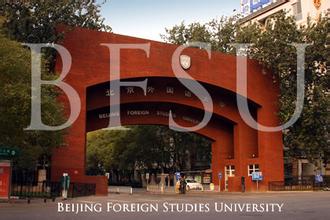| 2016考研英语二真题完形填空题源解析 |

| 1 楼 QJ312825 帖数:11 发布时间:2016/1/12 15:10:53 |
|
2016考研英语二真题完形填空题源解析
编辑点评:2016英语二的完形填空文章来源于Harvard Business Review《哈佛商业评论》,原文的标题为Companies In Happy Cities Invest More For The Long Term,发表时间是:06/10/2015。文章中没有出现太多高难度词汇,内容也较好理解,整体难度较小。北外网课第一时间为考生整理了完形填空文章的来源,后附答案关键词,方便考生查阅。 Happy people work differently. They’re more productive, more creative, and willing to takegreater risks. And new research suggests that happiness might influence how firms work, too. Companies located in places with happier people invest more, according to a recent paper by Tuugi Chuluun of Loyola University Maryland and Carol Graham of Brookings. In particular, firms in happy places spend more on R&D. That’s because happiness, they argue, is linked to the kind of longer term thinking necessary for making investments for the future. Chuluun and Graham wanted to know if the optimism and proclivity for risk-taking that come with happiness would change the way companies invested. So they compared U.S. cities’ average happiness, as measured by Gallup polling, with the investment activity of publicly traded firms in those areas. (Gallup asks respondents to evaluate their lives from zero to 10, with 10 representing the “best possible life.”) Sure enough, firms’ investment and R&D intensity were correlated with the happiness of the area in which they were headquartered (view maps of average happiness, investment, and R&D here). But is it really happiness that’s linked to investment, or could something else about happier cities explain why firms there spend more on R&D? To find out, the researchers controlled for various factors that might make firms more likely to invest — like size, industry, and sales — and for indicators that a place was desirable to live in, like growth in wages or population. The link between happiness and investment generally held even after accounting for these things (though more so for R&D than for other investments). The correlation between happiness and investment was particularly strong for younger firms, which the authors attribute to “less codified decision making process” and the possible presence of “younger and less experienced managers who are more likely to be influenced by sentiment.’” The relationship was also stronger in places where happiness was spread more equally. Firms seem to invest more in places where most people are relatively happy, rather than in places with happiness “inequality, or large gaps in the distribution of well-being.” While this doesn’t prove that happiness causes firms to invest more or to take a longer-term view, the authors believe it at least hints at that possibility. It’s not hard to imagine that local culture and sentiment would help shape how executives think about the future. Just ask anyone who’s spent time in Silicon Valley. “It surely seems plausible that [happy people] would be more forward-thinking [and] creative and lean towards R&D more than the average,” said Graham. 参考答案: C 1. [C] how B 2. In particular D 3. [D] necessary C 4. [C] optimism D 5. [D] change B 6. measured A 7. [A] Sure D 8. [D] headquartered A 9. [A] explain B 10. factors A 11. [A] desirable C 12. [C]emerged A 13. [A] attribute D 14. [D]experienced A 15. [A] thus D 16. [D] equally C 17. [C] While C 18. [C] hints A 19. [A] shape B 20. lean towards 依托于北京外国语大学的优势教学资源和多语种特点,北外网课课程内容涵盖了英、日、韩、法、俄、德、西等10多种语言、300多门课程,是目前语种最丰富的在线教育平台。为了满足学习者差异化的学习需求,北外网课在课程 展示形式上采用了直播课、录播课及PPT+录播三种形式,学习者可以根据自己的需要进行选择。更重要的是,北外网课在课程设置上下足功夫,针对不同学习人 群,精确分级授课,着重培养学习者的外语能力,让学习者摆脱“高分低能”的尴尬局面,有针对性地提升学习者的外语水平。 如果想了解更多英语四六级在线学习教材、学习资料,请搜索北外网课,随时与我们联系。 也许下面的课程会很适合您,不妨看看: http://www.beiwaiclass.com/topic/kaoyan/?from=wailian |